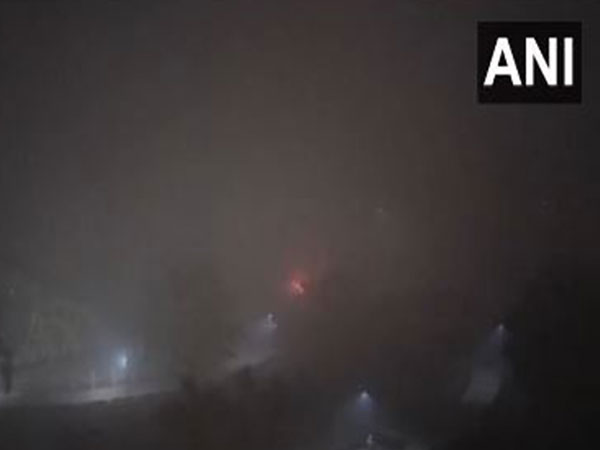Dense Fog and Cold Waves Deepen Delhi's Winter Woes
Dense fog and plummeting temperatures have enveloped Delhi, deteriorating air quality to 'very poor.' The homeless seek refuge in night shelters, as North India battles harsh winter conditions. Temporary shelters provide solace, while local leaders ensure care for vulnerable populations.

- Country:
- India
Dense fog blanketed the national capital on Friday morning as severe cold waves swept through Delhi. The India Meteorological Department reported a temperature of 9.6 degrees Celsius at 5:30 a.m.
Air quality worsened from 'poor' to 'very poor,' with an AQI of 348 recorded today at 6 a.m., according to the Central Pollution Control Board. The AQI scale categorizes readings from 'good' to 'severe,' with Delhi's current reading firmly in the 'very poor' bracket.
As the mercury dipped, the city's homeless population increasingly turned to night shelters. The Delhi Urban Shelter Improvement Board (DUSIB) set up 235 pagoda tents to provide warmth and refuge. Night shelters are operational across the city, particularly in areas such as AIIMS, Lodhi Road, and Nizamuddin flyover.
Residents have been gathering around bonfires to combat the chill, with some seeking shelter in designated night homes. North Indian states, including Uttar Pradesh and Jammu & Kashmir, experienced similarly harsh winter conditions.
Uttar Pradesh's Lucknow registered a temperature of 8 degrees Celsius early in the morning, prompting local authorities to establish temporary shelters for the homeless. Aligarh's residents also turned to these shelters for relief. In Srinagar, Jammu and Kashmir, the temperature hit -1.3 degrees Celsius, impacting travel and leading Indigo airlines to issue a travel advisory due to snowfall disturbances.
With Jaipur recording 10.2 degrees Celsius, Rajasthan Chief Minister Bhajanlal Sharma visited winter shelters in Gandhinagar to distribute blankets and ensure adequate facilities. He assured reporters of the good arrangements made for the homeless, underscoring the state's commitment to helping its vulnerable populations during this challenging winter period.
(With inputs from agencies.)










